
Peugeot 208 Fuel Consumption: Complete Efficiency & MPG Guide
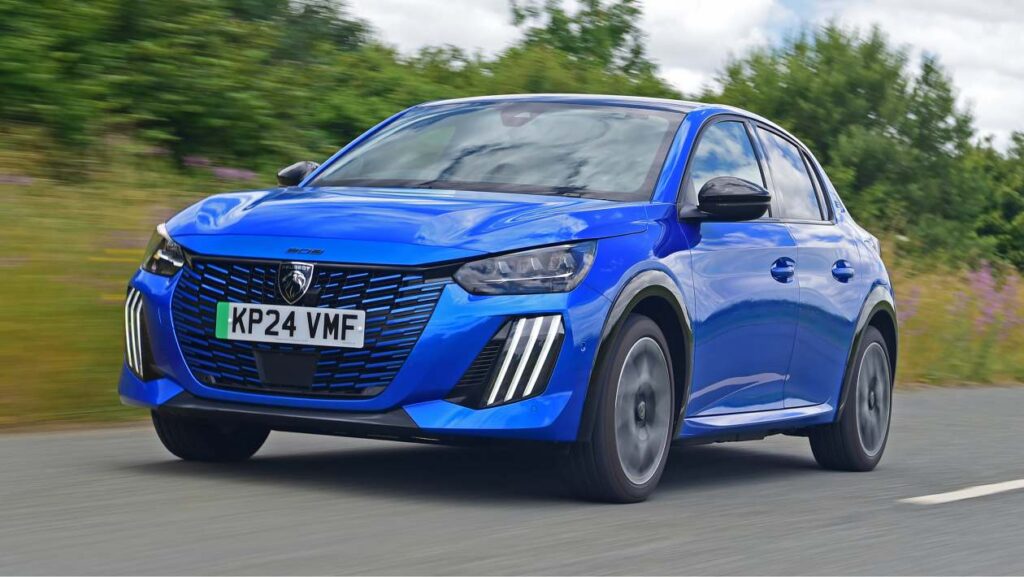
The Peugeot 208 has long been one of Europe’s most stylish and efficient small hatchbacks. With petrol, diesel, hybrid, and fully electric versions available, it offers a remarkable range of fuel consumption figures that cater to both performance enthusiasts and economy-focused drivers. In this comprehensive guide, we explore every detail of the Peugeot 208 fuel economy, breaking down real-world MPG, efficiency comparisons, and the factors that influence consumption across different engine types.
- Overview: Efficiency as a Core Peugeot 208 Trait
- Peugeot 208 Petrol Engine Fuel Consumption
- Peugeot 208 Diesel Engine Fuel Consumption
- Peugeot e-208 Electric Efficiency
- Real-World Fuel Consumption vs. Official Figures
- Fuel Tank Capacity and Driving Range
- Peugeot 208 Hybrid Fuel Efficiency
- Competitor Comparison: How the 208 Stacks Up
- How to Maximize Peugeot 208 Fuel Efficiency
- Verdict: Peugeot 208 Fuel Economy Excellence
Overview: Efficiency as a Core Peugeot 208 Trait
Peugeot designed the 208 to be one of the most economical cars in its class. Built on the lightweight CMP platform shared across Stellantis brands, the 208 benefits from:
- Reduced overall weight compared to the previous generation.
- Improved aerodynamics with a sleek, low-drag silhouette.
- Advanced engine calibration to minimize CO₂ emissions and fuel use.
Whether you choose a 1.2L PureTech petrol, 1.5L BlueHDi diesel, or electric e-208, each version has been engineered to deliver impressive real-world fuel efficiency without sacrificing style or comfort.
Peugeot 208 Petrol Engine Fuel Consumption
The petrol-powered Peugeot 208 models come with the 1.2-litre three-cylinder PureTech engine in varying power outputs — 75 hp, 100 hp, and 130 hp. Each engine can be paired with either a manual gearbox or an EAT8 automatic transmission.
| Engine & Transmission | Fuel Type | Power (hp) | Combined MPG (UK) | Urban MPG | Extra-Urban MPG | Consumption (km/L) |
|---|---|---|---|---|---|---|
| 1.2L PureTech 75 S&S Manual | Petrol | 75 | 48–56 mpg | 42–45 mpg | 55–65 mpg | 20.5–23.6 |
| 1.2L PureTech 100 S&S Manual | Petrol | 100 | 47–57 mpg | 37–43 mpg | 53–66 mpg | 19.8–24.1 |
| 1.2L PureTech 100 EAT8 Auto | Petrol | 100 | 48–55 mpg | 40–43 mpg | 56–64 mpg | 20.7–23.4 |
| 1.2L PureTech 130 EAT8 Auto | Petrol | 130 | 46–52 mpg | 37–41 mpg | 53–61 mpg | 19.6–22.1 |
Fuel Efficiency Insights
- Best economy: 1.2L PureTech 100 manual – up to 56.7 mpg combined.
- Most balanced choice: 1.2L PureTech 100 EAT8 automatic – offers refined performance with around 50–55 mpg in mixed driving.
- Performance pick: 130 hp EAT8 variant – slightly higher consumption, averaging 46–52 mpg, but noticeably stronger acceleration.
Peugeot 208 Diesel Engine Fuel Consumption
For those who prioritize range and efficiency, the 1.5L BlueHDi diesel remains unbeatable. This engine excels on long motorway drives and offers some of the best MPG figures in the small hatchback class.
| Engine & Transmission | Fuel Type | Power (hp) | Combined MPG (UK) | Urban MPG | Extra-Urban MPG | Consumption (km/L) |
|---|---|---|---|---|---|---|
| 1.5L BlueHDi 100 S&S Manual | Diesel | 100 | 60–74 mpg | 55–64 mpg | 70–86 mpg | 25.8–31.3 |
Fuel Efficiency Insights
- Average real-world economy: 65–70 mpg.
- Best recorded result: Up to 73.6 mpg combined, equating to about 31 km/L.
- Ideal for: Commuters covering long distances, or those who need low CO₂ emissions for tax benefits.
With its diesel engine, the 208 can easily exceed 800 miles (≈1300 km) on a full tank when driven efficiently.
You may be interested in reading Peugeot e-208 Electric Range: The Benchmark for Efficiency and Innovation in 2025
Peugeot e-208 Electric Range: The Benchmark for Efficiency and Innovation in 2025Peugeot e-208 Electric Efficiency
While the electric e-208 technically records 0 mpg, its efficiency can be measured in miles per kWh or energy consumption per 100 km. The e-208’s 50 kWh battery delivers a range of up to 225 miles (WLTP), depending on conditions and driving style.
| Model | Battery Capacity | Range (WLTP) | Efficiency (miles/kWh) | Equivalent MPG (UK) |
|---|---|---|---|---|
| Peugeot e-208 | 50 kWh | 225 miles | 4.0 mi/kWh | ~120–130 MPGe |
Efficiency Insights
- City driving: The e-208 excels in stop-start traffic, often surpassing 5 mi/kWh.
- Motorway driving: Expect around 3.5–4.0 mi/kWh.
- Running costs: Recharging costs are typically 70–80% lower than fueling a petrol car for the same distance.
Real-World Fuel Consumption vs. Official Figures
Official WLTP ratings often paint an optimistic picture. In real-world tests:
- Petrol models tend to achieve 90–95% of claimed MPG.
- Diesel versions consistently meet or exceed official figures, especially on highways.
- Hybrids and electrics depend heavily on driving style and temperature.
Influencing Factors
- Driving behavior: Gentle acceleration and smooth cruising can increase efficiency by up to 15%.
- Tyres: The 208 often comes with Michelin Pilot Sport tyres — great for handling, but pricier and slightly less efficient.
- Load and terrain: Heavy cargo or hilly routes reduce efficiency noticeably.
Fuel Tank Capacity and Driving Range
| Fuel Type | Tank/Battery Capacity | Approximate Range |
|---|---|---|
| Petrol (1.2L engines) | 44 litres | 450–550 miles |
| Diesel (1.5L BlueHDi) | 41 litres | 700–850 miles |
| Electric (e-208) | 50 kWh battery | 200–225 miles |
This makes the diesel 208 the best choice for range, while the e-208 leads in urban efficiency and zero-emission driving.
Peugeot 208 Hybrid Fuel Efficiency
The latest Peugeot 208 Hybrid combines a 1.2L PureTech petrol engine with a small electric motor for smoother power delivery and lower CO₂ emissions.
- Official fuel economy: Around 55–60 mpg combined.
- CO₂ emissions: Below 100 g/km, ideal for low-tax regions.
- Best use case: Urban and suburban driving where regenerative braking maximizes efficiency.
Competitor Comparison: How the 208 Stacks Up
| Model | Fuel Type | Combined MPG (UK) | Equivalent Range |
|---|---|---|---|
| Peugeot 208 1.5 BlueHDi | Diesel | 74 mpg | 850 miles |
| Ford Fiesta 1.0 EcoBoost | Petrol | 52 mpg | 500 miles |
| Renault Clio 1.0 TCe | Petrol | 54 mpg | 520 miles |
| Volkswagen Polo 1.0 TSI | Petrol | 51 mpg | 490 miles |
| Vauxhall Corsa Electric | Electric | 0 mpg / 130 MPGe | 220 miles |
Peugeot’s BlueHDi diesel and e-208 electric models clearly outperform most rivals when it comes to both economy and range.
How to Maximize Peugeot 208 Fuel Efficiency
To achieve the best possible fuel consumption, consider the following:
You may be interested in reading Peugeot e-208 Electric Range: The Benchmark for Efficiency and Innovation in 2025
Peugeot e-208 Electric Range: The Benchmark for Efficiency and Innovation in 2025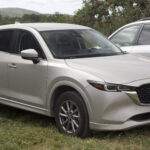 Mazda CX-5 Real-World MPG and Fuel Economy Data (2025 Edition)
Mazda CX-5 Real-World MPG and Fuel Economy Data (2025 Edition)- Maintain correct tyre pressure (check monthly).
- Avoid aggressive acceleration.
- Use Eco driving mode in petrol and hybrid variants.
- Plan journeys to minimize idling and stop-start cycles.
- Keep up with regular servicing and software updates.
Verdict: Peugeot 208 Fuel Economy Excellence
The Peugeot 208 stands as one of the most efficient superminis available today.
- Best petrol: 1.2L PureTech 100 (Manual) – excellent all-rounder.
- Best diesel: 1.5L BlueHDi 100 – unmatched economy and range.
- Best for urban drivers: e-208 – clean, quiet, and incredibly cheap to run.
Whichever variant you choose, the 208’s engineering ensures that every mile driven is optimized for efficiency, economy, and enjoyment.
Frequently Asked Questions (FAQs)
1. What is the most fuel-efficient Peugeot 208 engine?
The 1.5L BlueHDi diesel is the most efficient, averaging up to 73.6 mpg.
2. How much fuel does the Peugeot 208 use per 100 km?
Depending on the engine, it ranges from 4.5 to 6.0 L/100 km for petrol and 3.8 to 4.0 L/100 km for diesel.
3. Does the Peugeot 208 hybrid improve fuel economy?
Yes, it blends electric assistance with petrol power to reach around 60 mpg combined.
4. What’s the fuel tank capacity of the Peugeot 208?
Petrol models have a 44-litre tank, while diesel versions hold 41 litres.
 Peugeot e-208 Electric Range: The Benchmark for Efficiency and Innovation in 2025
Peugeot e-208 Electric Range: The Benchmark for Efficiency and Innovation in 2025 Mazda CX-5 Real-World MPG and Fuel Economy Data (2025 Edition)
Mazda CX-5 Real-World MPG and Fuel Economy Data (2025 Edition)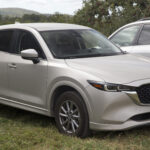 Mazda CX-5 Fuel Consumption: Real-World Efficiency, Engine Comparison & Driving Insights
Mazda CX-5 Fuel Consumption: Real-World Efficiency, Engine Comparison & Driving Insights5. How efficient is the electric Peugeot e-208?
The e-208 achieves about 120 MPGe, translating to roughly 4–5 miles per kWh, depending on driving conditions.
Final Thoughts:
The Peugeot 208 excels as a small car that masterfully balances style, performance, and outstanding fuel efficiency. Whether powered by petrol, diesel, hybrid, or electricity, it remains one of the most economical hatchbacks on the market — a testament to Peugeot’s dedication to intelligent engineering.
If you want to know other articles similar to Peugeot 208 Fuel Consumption: Complete Efficiency & MPG Guide you can visit the category Driving.
Leave a Reply

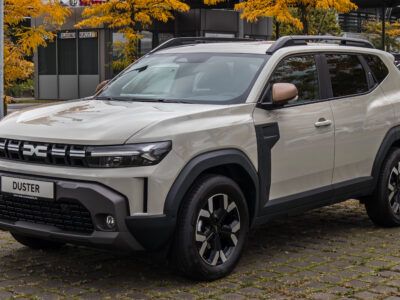
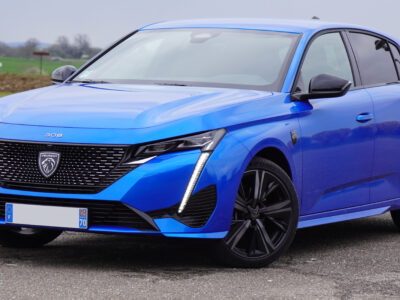
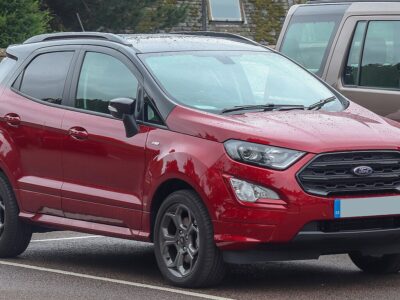
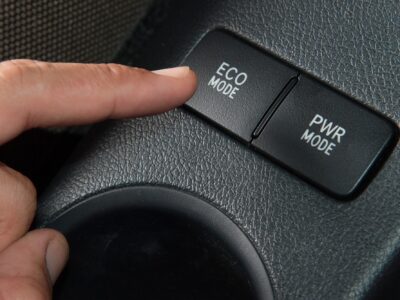
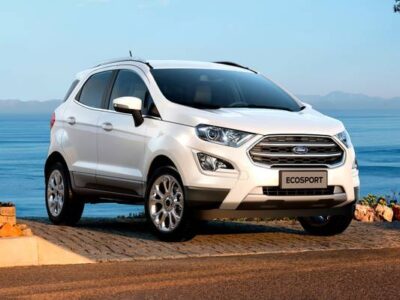
More content of your interest